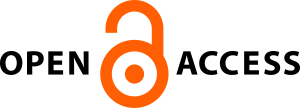Digitalization of Higher Education through MOOC
Abstract
Arrival of massive online open courses brings plenty of opportunities for prevailing education system in our country. The
Indian Government has started various programmes under Massive Open On-line Course (MOOCs) movement which is
playing a pivotal role in transforming higher education in order to improve reachability to the India youth. MOOCs have
emerged as one of the most potential tools in providing quality education and massive training to a learners and audience
worldwide. In spite of enhanced assistance people accessing MOOCs from the developing countries, especially India is not
counting out to a significant number. India provides an abode of education offers a prospective space to MOOC for giant scale
accomplishment. However several factors and constraints like lack of proper digital infrastructure, and low digital literacy
hamstring the entire process of extensive accomplishment of MOOCs. MOOCs include various programme under Digital
Saksharta Abhiyan (DISHA). The ambitious project of GOI includes National Programme on Technology Enhanced
Learning (NPTEL) courses for graduate & post-graduates students of Engineering, Humanities, Management, and Social
Sciences. Another one is, Global Initiative of Academic Networks (GIAN) aimed at tapping the talent pool of scientists and
entrepreneurs for skill development. Government of India has taken initiative to create National Knowledge Network (NKN)
for connecting various government research centers to share their data & research outcome. Some other project like National
Digital Library (NDL) is open to all for the aforesaid above purpose.
These visionary projects of GOI have some limitations in planning and implementation phases. Major challenge is the
acceptability and credibility of on-line certificate course by University Professors and Students. These certificates course
need to add advantages for government jobs and promotions. The paper provides a glimpse of Anxieties and Constraints for
Implementation of such projects. The manuscript also concludes planning level suggestions for further improvement so that
MOOCs platform could be used significantly. These suggestions may have capacity to change the dynamics of on-line higher
education in India.



